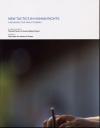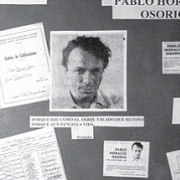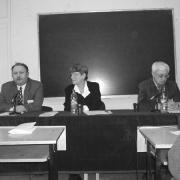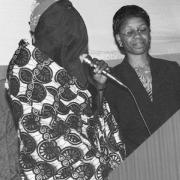Bengali Collection of Tactics (book)
 This book, published by the Center for Victims of Torture - New Tactics in Human Rights, is a collection of 80 stories of successful tactics used for human rights work. The stories come from all over the world and range from prevention tactics to intervention tactics, restorative tactics to those that building human rights cultures and institutions.
This book, published by the Center for Victims of Torture - New Tactics in Human Rights, is a collection of 80 stories of successful tactics used for human rights work. The stories come from all over the world and range from prevention tactics to intervention tactics, restorative tactics to those that building human rights cultures and institutions.


 Documentary Heritage is a program of Memoria Abierta (Open Memory), whose goal is to improve the use of and access to the documentation stored in the institutional archives of participating human rights organizations. The Documentary Heritage Program seeks to make all of the documentation related to the period of state terrorism and its present consequences accessible for research and educational purposes, thereby increasing knowledge and contributing to a social conscience about what occurred in Argentina.
Documentary Heritage is a program of Memoria Abierta (Open Memory), whose goal is to improve the use of and access to the documentation stored in the institutional archives of participating human rights organizations. The Documentary Heritage Program seeks to make all of the documentation related to the period of state terrorism and its present consequences accessible for research and educational purposes, thereby increasing knowledge and contributing to a social conscience about what occurred in Argentina.  Citizens’ Watch, a Russian nongovernmental organization, uses a collaborative tactic to engage governmental officials, who in many cases are seen as the adversary and not considered as partners. Citizens’ Watch recognized the potential for engaging bureaucrats who illustrated a level of interest in significantly advancing human rights. The author describes the unique uses of this tactic and highlights examples of cross-sectoral cooperation between a nongovernmental organization and the Russian government to advance human rights.
Citizens’ Watch, a Russian nongovernmental organization, uses a collaborative tactic to engage governmental officials, who in many cases are seen as the adversary and not considered as partners. Citizens’ Watch recognized the potential for engaging bureaucrats who illustrated a level of interest in significantly advancing human rights. The author describes the unique uses of this tactic and highlights examples of cross-sectoral cooperation between a nongovernmental organization and the Russian government to advance human rights.  BAOBAB for Women’s Human Rights, in collaboration with the Civil Resource Development and Documentation Centre (CIRDDOC), highlighted violations of women’s rights in Nigeria that were viewed by the public as normal or even justifiable abuse. They used a mock tribunal to change public perceptions and beliefs regarding violations against women, and changed public policy and law.
BAOBAB for Women’s Human Rights, in collaboration with the Civil Resource Development and Documentation Centre (CIRDDOC), highlighted violations of women’s rights in Nigeria that were viewed by the public as normal or even justifiable abuse. They used a mock tribunal to change public perceptions and beliefs regarding violations against women, and changed public policy and law.